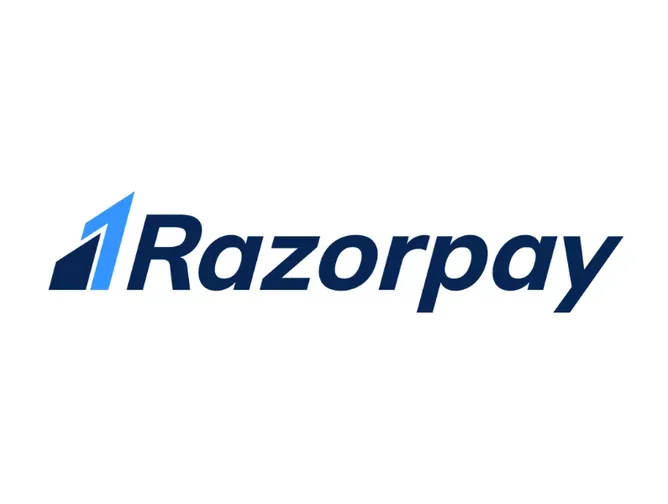Top 10 fintechs in APAC and MEA

While the eyes of many may focus on the accomplishments and impressive growth rates of fintechs in the Western world, let’s not overlook the successes and significant financial growth of fintechs hailing from both the Asia-Pacific (APAC) and Middle East & African (MEA) regions.
Read on to find out our Top 10 fintechs from both regions, starting with Egypt's MNT-Halan…

10. MNT-Halan
A burgeoning Egyptian fintech, MNT-Halan is the country’s leading finance ecosystem, and a fast-growing lender to unbanked and underbanked populations. Founded in 2018, MNT-Halan has grown a digital ecosystem encompassing lending options, buy now pay later finance and ecommerce. MNT-Halan backs its platform with Neuron, its proprietary technology, which sees it serve over 5m customers in Egypt alone. The fintech says it processes over US$100m in transactions on a monthly basis. In February 2023, it secured US$400m in equity and debt funding to fuel its growth on the international stage.

9. Razorpay
With over 300m customers, Razorpay can count itself among the largest fintechs in India. Founded in 2014 by Harshil Mathur and Shashank Kumar, the company’s aim is to leverage developer-friendly APIs to enable frictionless transactions and overhaul money management for online businesses. Razorpay boasts a workforce of roughly 800 employees and is backed by the likes of Sequoia, Ribbit Capital, Tiger Global and Y Combinator, as it continues to offer fast and secure ways for merchants, ecommerce companies and public institutions to accept and disburse payments online – with services ranging from payments and banking to credit and payroll.

8. Ke Holdings
Ke Holdings is a Chinese holdings company engaged in housing transactions and other related services. Founded in 2001, Ke Holdings operates across three segments: Existing Home Transaction Services, New Home Transaction Services, and Emerging and Other services. Its Existing Home Transaction Services provides sales and leasing of existing housing through the online brokerage Beike; the New Home Transaction Services segment provides new housing agency sales for real estate developers; while the Emerging and Other services segment is engaged in financial services and other newly developed businesses.

7. Optasia
Dubai-based Optasia is an advanced AI platform enabling access to financial products and solutions for underserved populations. Extending its services to over 30 countries, Optasia’s data engine and algorithms analyse different data from mobile devices to provide instant credit decisions to its partners. Today, the company enables credit decisions for an estimated 88m customers a month, and, as of 2021, had 560m addressable customers. The fintech has partnered with Vodapay in recent times – the financial arm of telecom company Vodacom – expanding its presence in the Democratic Republic of Congo.

6. MadfooatCom
Real-time bill presentment and payment system provider MadfooatCom is a leading Jordanian fintech, enabling consumers to pay and enquire about their bills. Founded in 2011, MadfooatCom partners with banks in Jordan to help them enhance their customer experiences and shorten collection cycles. In fact, MadfooatCom partners with more than just banks, striking deals with telecom companies, government agencies and non-profit organisations across Egypt, Saudi Arabia, Oman, Palestine, the UAE and Morocco, as well as its native Jordan.

5. Grab
Grab is a Southeast Asian super-app that describes itself as ‘the everyday everything app’. The app allows users to order food deliveries, pay for daily purchases, invest in the stock market, take out insurance for life's necessities, and even book a hotel room. Since its founding in 2012, Grab has grown to become an app used by millions of consumers daily across Southeast Asia, with a presence in 13 different markets. Headquartered in Singapore, the fintech is currently led by former Harvard Business School graduate Anthony Tan as Co-Founder and CEO.

4. Fawry
Egyptian fintech Fawry is a leading digital payments platform in the region. Founded in 2008, Fawry provides electronic bill payments, mobile top-ups, cash deposits and withdrawals to the consumers it serves. The fintech also has an extensive range of investments, savings, insurance, rewards, loyalty and e-ticketing products. Fawry also serves SMEs, enabling them to accept payments through a range of terminals, be it online, mobile, or point-of-sale (POS). The fintech went public in 2019 and has since launched Tamweelak Fawry, a lending platform for SMEs and micro businesses.

Another Chinese company, Lufax Holding is a financial services empowering institution for small and micro businesses operating out of China. Associated with Ping An Group, Lufax’s mission is to foster small business competitiveness, providing SMEs and individuals with inclusive products and services to help institutional partners reach and serve SBOs efficiently. Today, Lufax is partnered with over 550 financial institutions in China, supporting them through its offline-to-online model by leveraging an extensive nationwide direct sales network.

2. Tencent
Tencent is one of China’s biggest multinational technology and entertainment conglomerates. The operator of WeChat, Tencent’s platform plays host to a range of embedded finance offerings. In 2018, the company surpassed a market value of US$500bn and is today the most valuable publicly traded company in China. Today, Tencent is involved in many emerging trends shaping the future of financial services, leveraging advanced AI and large industry models to serve its customers and business partners. Among other ventures, Tencent is one of the world’s largest video game vendors.

1. Ant Group
Our top fintech in APAC is Ant Group, the parent company of Alipay, and one of the world’s most-used mobile payment platforms. Alipay helps to connect consumers and merchants, supporting both ecommerce and physical transactions. Today, the fintech supports over 2,000 financial institutions in China to provide inclusive financial services – ranging from consumer finance and wealth management to insurance. It also collaborates with local governments in over 1,000 counties, more than 500 brands, and 1,000 financial institutions. Formerly part of the Alibaba Group, Ant Group was split out in 2011. Recently, the founder of both Ant Group and Alibaba, Jack Ma, gave up overall control of Ant Group amid a whirlpool of regulatory scrutiny.
- WorldFirst: Is now still the time for SMEs to export abroad?Financial Services (FinServ)
- FinTech Magazine’s Top 10 companies in APACFinancial Services (FinServ)
- Flywire and Tencent in China tuition payments partnershipDigital Payments
- Alipay and Thunes forge cross-border payments partnershipDigital Payments







